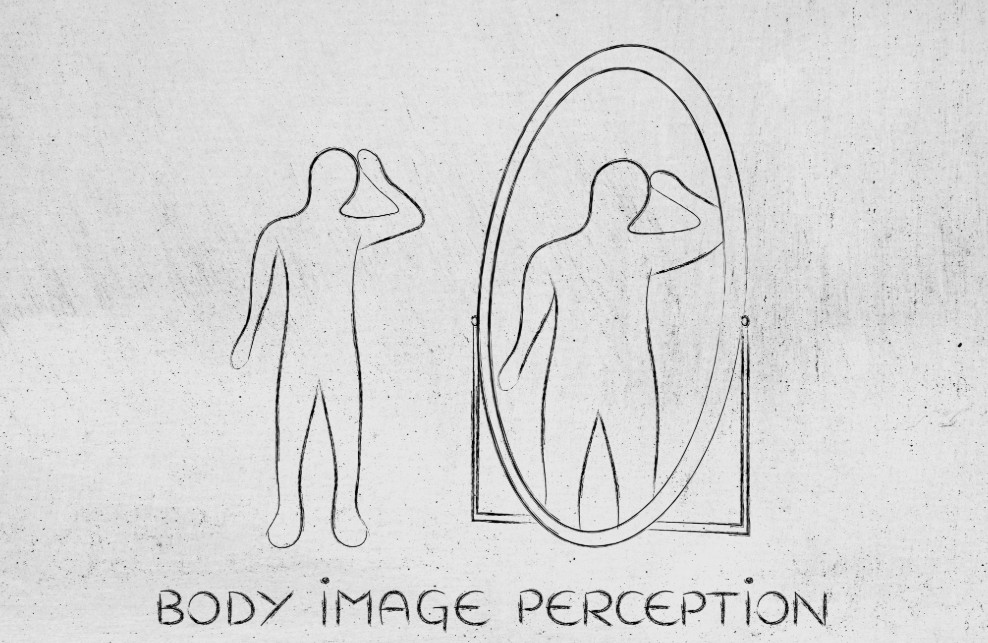
Eating disorders are serious and often misunderstood mental health conditions that affect everyone. Not just young, white, females. People of all genders, ages, races, ethnicities, body types, sexual orientations and socioeconomic backgrounds experience disordered eating and the emotional struggles that come with it.
Developing healthy eating habits is key to prevention of eating disorders. At Monmouth Integrative Counseling Services (MICS) we know seeking help for an eating disorder can feel overwhelming.
Our team of compassionate and trained therapists are here to offer personalized support and evidence based care that meets you where you are. In this article we’ll explore the reality of eating disorders, why therapy matters and how our integrative approach can help individuals move towards lasting recovery.
The Reality of Eating Disorders in America
Eating disorders are more common and more deadly than most people realize. They impact not just the physical body but the emotional and psychological well being of those who struggle with them. The numbers are staggering:
- Over 30 million people in the United States are living with an eating disorder.
- 9% of Americans will develop an eating disorder at some point in their lives.
- Every 52 minutes someone in the US dies as a direct result of an eating disorder—making it one of the deadliest mental health conditions.
Certain risk factors increase the likelihood of developing an eating disorder especially during the teen and young adult years. Adolescents and teenagers are especially vulnerable.
Despite these statistics eating disorders are still widely misunderstood and often go undiagnosed. Stigma and shame prevent people from seeking help. Understanding these disorders and their risk factors can lead to better treatment and support. At MICS we are committed to challenging these misconceptions and providing a safe space for healing.
What are the Types of Eating Disorders?
Eating disorders are about more than just food— they are rooted in emotional pain, control, trauma and self worth. These disorders often develop as coping mechanisms for deeper psychological challenges. While each experience is unique, common diagnoses include:
Anorexia Nervosa
Anorexia nervosa is a life threatening eating disorder characterized by a distorted body image and fear of gaining weight. Individuals with anorexia nervosa restrict their food intake leading to significant weight loss and potentially serious health complications.
Symptoms of anorexia nervosa include:
- Denial of the seriousness of the condition
- Restrictive eating patterns
- Significant weight loss
- Fear of gaining weight or becoming fat
- Distorted body image

Anorexia nervosa can lead to serious health consequences including osteoporosis, hair loss, fatigue, heart problems and organ failure. It has a high mortality rate compared to other mental disorders and individuals with anorexia nervosa are at risk of experiencing medical complications associated with starvation.
Bulimia Nervosa
Bulimia nervosa is a serious eating disorder characterized by recurring episodes of binge eating followed by purging or compensatory behaviors. Individuals with bulimia nervosa may use laxatives, diuretics or engage in excessive exercise to prevent weight gain. Symptoms of bulimia nervosa include:
- Binge eating followed by purging or compensatory behaviors
- Feeling guilty or ashamed after eating
- Using laxatives or diuretics to control weight
- Excessive exercise
Bulimia nervosa can lead to serious health consequences including tooth decay, gum disease, electrolyte imbalance, dehydration and heart problems.
Binge Eating Disorder
Binge eating disorder is characterized by recurring episodes of eating large quantities of food often accompanied by feelings of guilt, shame and anxiety. Individuals with binge eating disorder may eat rapidly, eat until uncomfortably full and experience a lack of control during eating. Symptoms of binge eating disorder include:
- Recurring episodes of eating large quantities of food
- Feeling a lack of control during eating
- Eating rapidly or in secret
- Feeling guilty or ashamed after eating
Binge eating disorder can lead to serious health consequences including obesity, high blood pressure, high cholesterol, type 2 diabetes and heart disease.

Avoidant Restrictive Food Intake Disorder (ARFID)
Avoidant restrictive food intake disorder (ARFID) is a recently defined eating disorder characterized by a disturbance in eating resulting in persistent failure to meet nutritional needs. Individuals with ARFID may avoid certain foods. Symptoms of ARFID include:
- Avoiding certain foods due to sensory issues
- Restrictive eating patterns
- Fear of eating due to concerns about choking or vomiting
- Lack of interest in eating
ARFID can lead to serious health consequences including malnutrition, weight related problems, social isolation, depression and anxiety.
Other Specified Feeding or Eating Disorders (OSFED): Individuals may experience disordered eating behaviors that don’t meet the full criteria for the above disorders but still need professional treatment and support.
It’s important to note many people don’t fit neatly into one category and every person’s relationship with food, body image and control is deeply personal. That’s why individualized treatment is so important.
The Bigger Picture: Co-Occurring Conditions and Root Causes
Eating disorders rarely exist in a vacuum. In many cases individuals with eating disorders are also living with other mental health issues that may contribute to or be exacerbated by disordered eating patterns. These co-occurring conditions require a comprehensive and thoughtful therapeutic approach.
Here are some of the most common underlying or related issues seen in individuals with eating disorders:
- Post-Traumatic Stress Disorder (PTSD): Many individuals with eating disorders have experienced trauma including abuse, neglect or violence. Disordered eating may serve as a way of coping with unresolved trauma or regaining a sense of control.
- Depression and Anxiety: Feelings of hopelessness, panic, social anxiety and persistent worry can all contribute to the onset or continuation of an eating disorder.
- Substance Use Disorders (SUD): Research shows a high rate of substance abuse among individuals with eating disorders, as substances may be used to suppress appetite, manage anxiety or numb emotional pain.
- Obsessive Compulsive Disorder (OCD): Eating disorders often co-occur with obsessive compulsive disorder, where individuals may struggle with obsessive thoughts and compulsive actions related to food and weight.
At MICS we recognize the importance of treating the whole person. This includes addressing both the eating disorder and any co-occurring conditions in an integrated and trauma informed way.
Understanding the root causes of eating disorders is complex and multifaceted. Social factors along with genetic, biological, behavioral and psychological elements play a significant role in the development of eating disorders. These factors contribute to the risks associated with eating disorders across diverse populations.

How Therapy Helps: The MICS Approach to Mental Health
Therapy is the cornerstone of recovery from eating disorders. At MICS our licensed clinicians are specifically trained to help individuals navigate the complex emotions and behaviors that underlie disordered eating. We believe in a personalized, respectful and collaborative approach to healing. Individualized treatment plans are essential for addressing the unique needs of each person, involving a multidisciplinary team including doctors and therapists.
Therapy for eating disorders at MICS may include:
- Cognitive Behavioral Therapy (CBT): Helps identify and challenge distorted thoughts related to food, weight and self-image. CBT is one of the most researched and effective therapies for treating eating disorders.
- Trauma-Focused Therapy: For individuals with a history of trauma, this type of therapy allows for safe exploration and processing of painful experiences that may be driving eating behaviors.
- Mindfulness-Based Therapy: Encourages present-moment awareness and emotional regulation. Mindfulness can help reduce compulsive or avoidant behaviors and promote self-compassion.
When to Seek Help for Eating Disorders
It’s not always easy to recognize the signs of an eating disorder—especially when disordered eating is normalized or even praised in our culture. But early intervention can make a big difference. If you or someone you love is experiencing any of the following symptoms, it may be time to reach out:
- Preoccupation with food, calories, weight or body image
- Restrictive eating or skipping meals entirely
- Binge eating episodes, often followed by guilt or shame
- Purging behaviors (vomiting, laxatives, excessive exercise)
- Dramatic weight changes (loss or gain)
- Avoidance of social situations involving food
- Rigid food rules or rituals
- Feeling out of control around food
- Physical symptoms such as fatigue, dizziness or digestive issues
Don’t wait until things feel “bad enough.” Eating disorders are treatable and help is available now. Encourage those showing signs to get help.
You Deserve Support. You Deserve to Heal.
Living with an eating disorder can feel lonely, exhausting and overwhelming. But you don’t have to face it alone. At MICS we are here to walk beside you with care, respect and the tools to help you move towards recovery. It’s important to understand and address the complexities faced by people with eating disorders as these conditions can affect anyone of any gender, size or background.
